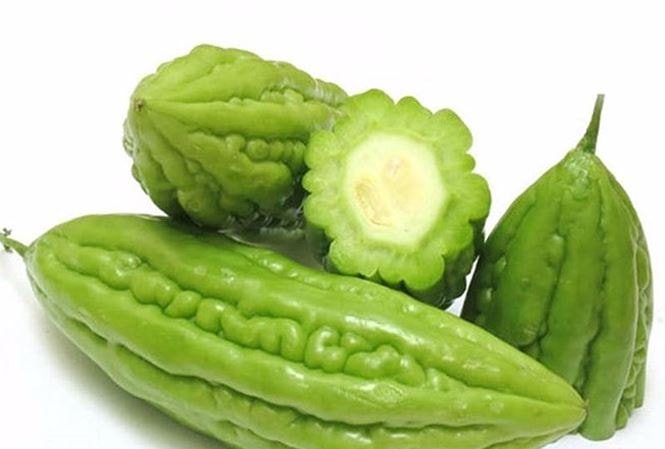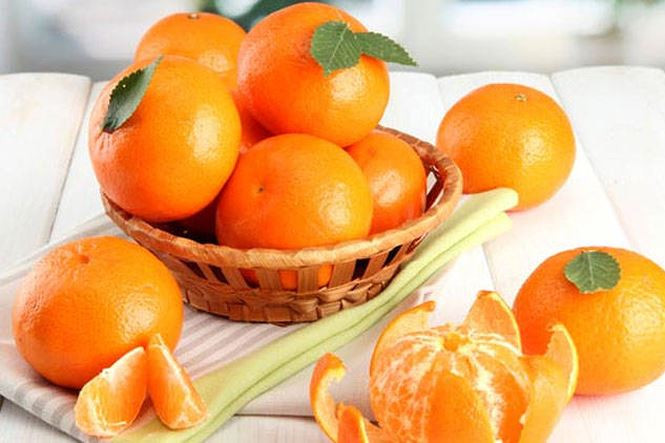Vegetables are both nutritious and great for detoxifying the liver.
Familiar vegetables and tubers in daily meals are effective "medicines" to improve health and help detoxify the liver very well.
Green, clean leafy vegetables are one of the foods that can effectively detoxify the liver. This type of vegetable can be eaten raw, cooked, or juiced. Green vegetables contain many vitamins and have high nutritional value. In particular, the chlorophyll in green vegetables is extremely good for the liver.
Besides, green vegetables also have the ability to remove toxins in the blood, protecting liver function extremely effectively.
Bitter melon
Because bitter melon has a bitter taste and cold properties, according to traditional medicine books, it has the effect of eliminating heat, quenching thirst, clearing the mind and liver.
Bitter melon contains a lot of water, which helps transport toxins to the kidneys for excretion. Bitter melon is cooling, reduces heat generation, and reduces poisoning caused by internal heat. Bitter melon also has a cooling effect on the liver, thus increasing the body's ability to detoxify.
Carrot
Carrots are rich in beta-carotene, which helps boost liver health, regulate blood sugar levels, and reduce inflammation in the body.
Avocado
Eating lots of avocados helps the body produce antioxidants, which help remove toxins and poisons from the body, especially the liver.
Artichoke
Regular use of artichoke will help enhance the process of filtering toxins, cooling the liver and keeping it healthy.
Oranges, tangerines, grapefruits, lemons
Oranges, tangerines, and grapefruits contain lots of vitamin C and antioxidants, which help increase the liver's detoxification process.
A glass of orange, tangerine, or grapefruit juice helps boost the production of liver detoxifying enzymes and eliminate other toxins.
Doctor's advice to prevent liver disease
For healthy people
First of all, it is necessary to maintain a balanced diet, not eat a lot of processed foods, fried foods with a lot of oil. Avoid abusing alcohol. Have a reasonable work, living and physical training regime. Implement a full and timely vaccination regimen for hepatitis B vaccine.
Adults who do not have the antigen should also be vaccinated against hepatitis B to prevent the disease.
Specifically: Do not eat raw foods (blood pudding, salad, raw vegetables, etc.), avoid parasitic infections (worms, flukes, etc.) because when you have a parasitic infection, the risk of damage to the liver and gallbladder is higher, eliminate the habit of drinking too much alcohol every day, especially alcohol of unknown origin, where the alcohol concentration and residual chemicals in the alcohol cannot be controlled.
For people with chronic liver disease
People with chronic liver disease need to develop a reasonable diet and exercise regimen under the guidance of a specialist. Nutritional deficiencies or excesses are not beneficial for people with liver disease, so special attention is needed when planning nutrition for patients.
Need to have a diet that ensures enough energy 35-40 kcal/kg/day; provide enough protein 1.2-1.5g/kg/day; Divide meals into many meals (4-6 meals/day, note that dinner before going to bed should only eat 200-300 calories).
People with chronic liver disease need to have a diet that is high in protein and sugar, and low in fat. Increase vitamins and minerals with green vegetables and fresh fruits. Completely eliminate alcohol, tobacco, etc. Do not exercise after meals because it will increase the burden on the liver. Every day, you need to sleep at least 8 hours.




